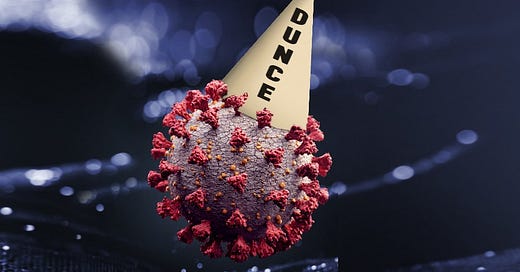Everyone loves a good World War II narrative. The specifics change, but the theme is always the same: A group of people come together to make the best of a bad situation. Sometimes it’s a platoon coming together, sometimes it’s a squadron, sometimes it’s an all-women’s baseball team. Often, an entire nation comes together; Americans like these narratives a lot and Brits love them substantially more than oxygen. We enjoy these stories because they celebrate our big win, even though the main reason that the Allies won World War II is that Hitler tripped over a pile of frozen Russian corpses on his way to Moscow.
For a nanosecond, it looked like Covid might be this type of story. Sure, cheering for health care workers was performative and cheap — where I was, people cheered even though health care workers couldn’t have heard us even if my building had been full of Freddy Mercury clones screaming at the top of their lungs — but it signaled a desire to band together. Maybe this was the moment that the nation would heal. Maybe a serious threat would compel us to drop the nonsense and make clear-eyed decisions. And maybe, just maybe, we would stop playing Who Has The Right To Throw The Biggest Hissy Fit for ten minutes and focus on what we have in common.
The pandemic is now over, and: nope. That did not happen. American politics did not cease to be an orgy of brain-dead points scoring. We do not seem to have developed decision-making skills that will serve us well in the next crisis. When all this started, I thought the presence of a science-based challenge with high stakes might force us to move down some learning curves at an accelerated pace. And it’s hard to assess how “we” did when “we” are 330 million individuals, but here’s my general impression of things we could have and maybe should have learned from Covid that we didn’t.




